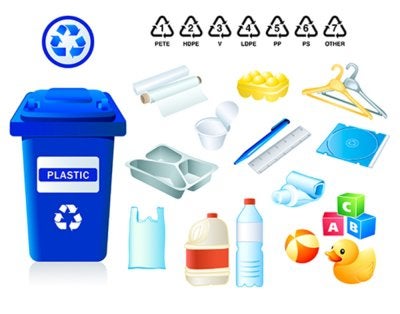Does your home or business use recycling bins in Atlanta as part of a responsible waste management program ? If so, then you may be wondering what happens to the empty water bottles and milk gallons that you toss in the bin. Continue reading to learn what happens to recycled plastic. 
The plastic is collected.
To begin the recycling process, used plastic items are first collected through industrial, commercial, and residential recycling programs. The materials that are collected are then transported to a facility that specializes in sorting the plastic, paper, metal, and other items. Also, the plastic items might be sorted into those that come from plastic bottles, plastic bags, and other plastic varieties. Then, the sorted materials are baled and prepared for transport.
The plastic is processed.
The bales of plastic materials are sent to a manufacturing facility and then processed. During this stage, the plastic is chopped up into small pieces to make them easier to process. Next, to ensure a quality product at the end of the plastic recycling process, the little pieces of plastic are cleansed of any labels, dirt, or other debris before being dried. Finally, the clean plastic pieces are melted and then compressed into little pellets. At this stage, the processed plastic that has been transformed into little pellets is sold to various industries to be transformed into something new.
The plastic is reused.
Once the recycled plastic is in the hands of manufacturers, it can be used for a wide range of purposes. Your recycled milk jugs, laundry detergent containers, and shampoo bottles, for example, are usually made of a sturdy but lightweight plastic that, after being recycled, can be used to make items like new milk jugs, lawn décor, plastic lumber, and recycling bins. Your plastic grocery bags, food wrappers, and bubble wrap can be utilized to make everything from playground equipment and park benches to fencing and new plastic bags. Finally, your soft drink and water bottles can be recycled and made into items such as clothing, carpeting, sleeping bags, and new bottles.

